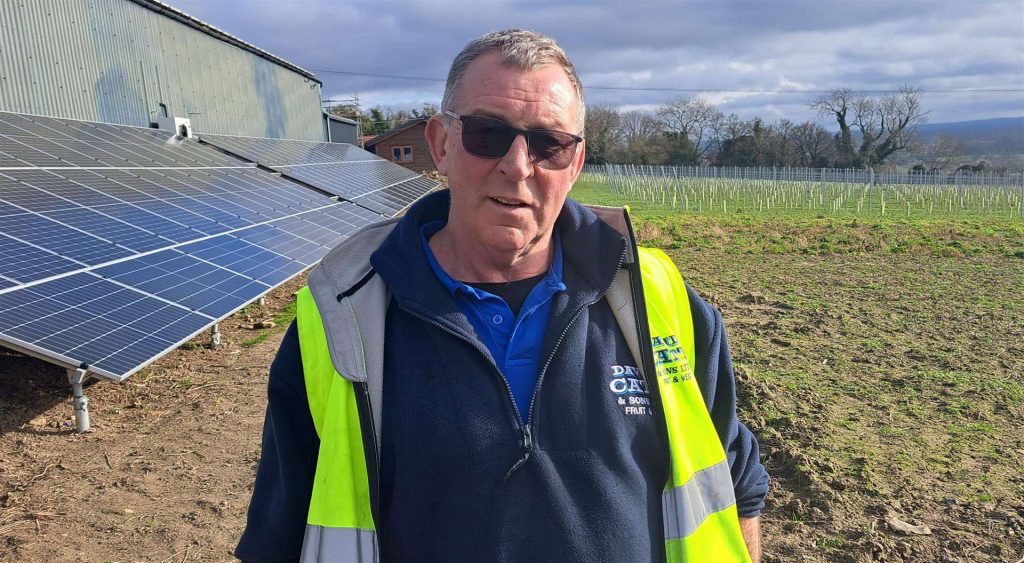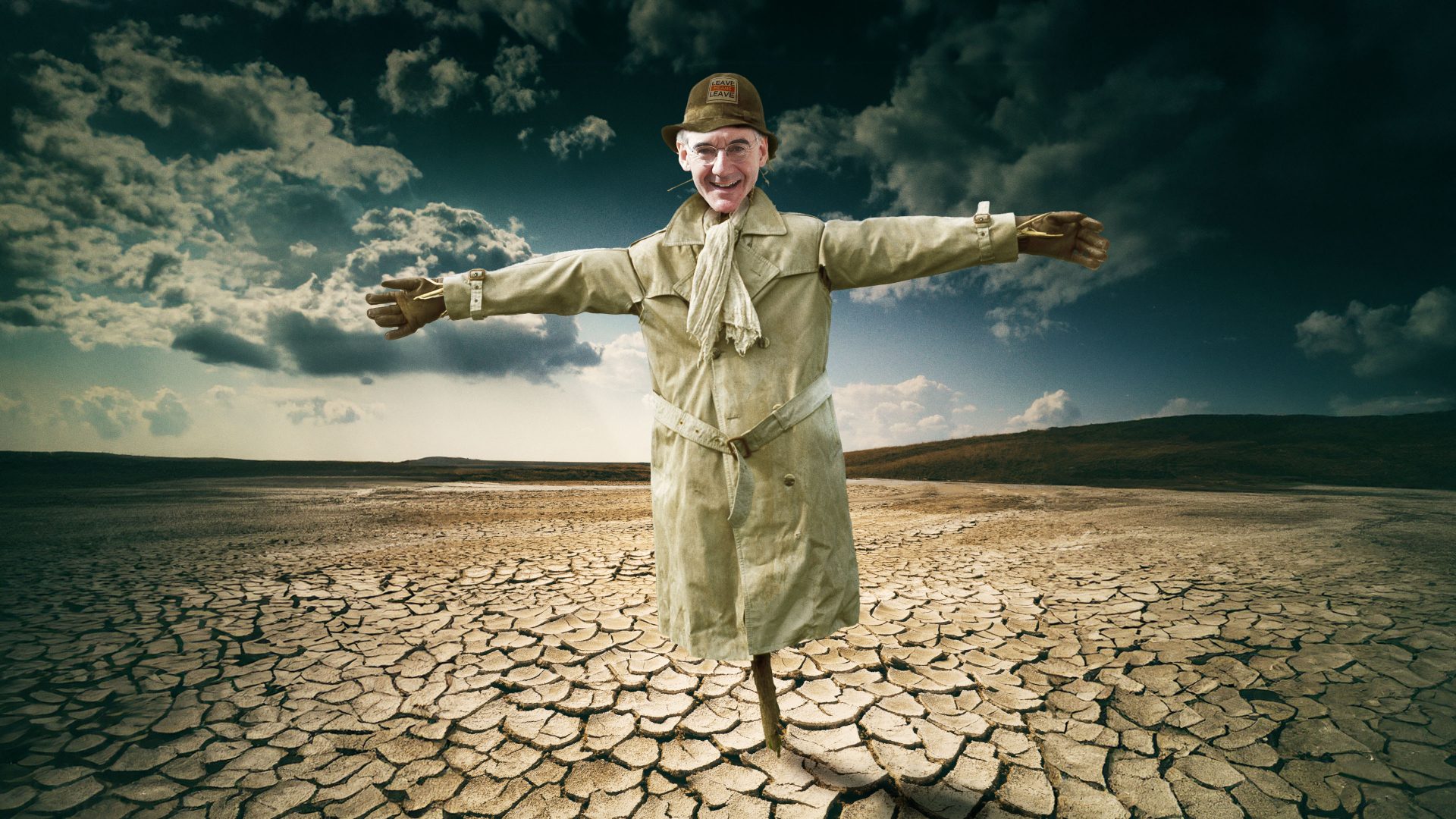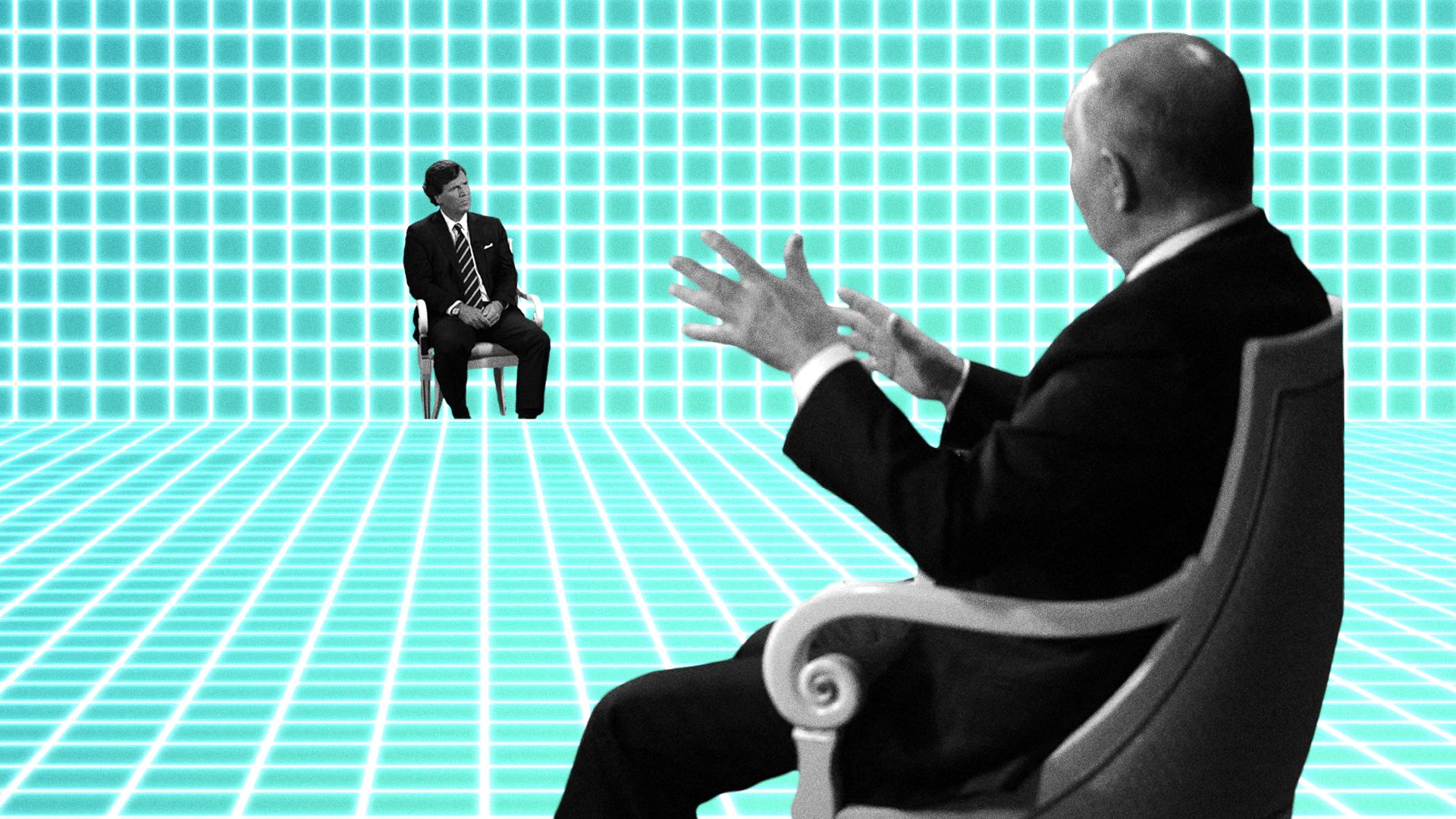While on the continent farmers are protesting in Paris and Brussels, British farmers are also quickly losing patience. David Catt is a farmer, food wholesaler and importer from Kent, with 50 years’ experience, and with strong salt-of-the-earth opinions, such as thinking that Jacob Rees-Mogg is a “pompous prick”. Let’s face it, he’s not the only one to think that, not by a country mile – the difference is that Catt has evidence.
Catt shot to fame last week when he gave Jacob Rees-Mogg a good thrashing on the MP’s own GB News show. It seems some junior producer accidentally managed to book someone who knew what they were talking about, and the MP for the 19th century couldn’t quite cope. Or as Catt put it, “I’m not going to be told by some pompous prick how things are… I’m not going to let him lie to me.”
The whole interview consists of Rees-Mogg, the former minister for Brexit opportunities, trying to tell someone who actually knows far more than he does that they are wrong, and he is right. Which is pretty much the dictionary definition of pomposity. Catt knows almost everything there is to know about the food industry in this country and the damage that Brexit is causing. Let us just say that if it had been a boxing match, the towel would have been thrown in before Rees-Mogg had even entered the arena.
Take, for instance, the problems of his Polish mushroom supplier, who could not get enough straw from Ukraine, due to Russia’s invasion – you need straw to grow mushrooms. So he asked Catt to supply it from the UK. He arranged for 500 lorry loads.
“The price was sorted, right, the transport was sorted, right – and then every single lorry needed a certificate to leave the UK, £500 each”. Strangely enough the deal died and Catt – and the UK – lost a huge export order that would have been very straightforward if it weren’t for Brexit.
Now those checks that have stymied his exports are being introduced for imports into the UK. The paperwork, the tests and the checks at the border will add to delays and make the process far more expensive.
As Catt explains: “Talking to my Dutch suppliers, they are concerned, because certain crops like tomatoes, courgettes, peppers and cucumbers will have to be checked in Holland before they leave, and at this end as well. That is going to add massively to the costs of tomatoes in winter months – tomatoes could become luxury items.”
Border delays will also extend delivery times again. A 24-hour delay would mean “your waste factor shoots up and you end up with dissatisfied customers. It becomes very complicated. There is no logic to it.” For Rees-Mogg, this is all a land of bright opportunities, but for Catt it is a dog’s dinner, and being lectured by the pompous politicos who promised him the earth just makes it worse.

To be clear, all of this is purely because of Brexit, and a badly negotiated Brexit deal at that. A deal on veterinary and safety standards would have meant hardly any of this red tape was necessary. But the government rejected that, and higher prices, waste, red tape, delays and inconvenience are the result.
The farming sector is torn over the introduction of proper border controls. Without them, it knows that rancid substandard meat is being imported in huge quantities, and it desperately needs that to stop. But the tests also mean expense, possible delays and waste to the seedlings and plants the farming industry needs to import regularly.
The tests on meat are vital. As Minette Batters, the president of the National Farmers’ Union, told me, without it the farming industry is in constant fear of the country importing foot and mouth disease, or African swine fever. The foot and mouth outbreak was a catastrophe for British farming. Swine fever would, Batters explains, “decimate the pork industry”. The government’s delays to checks at the border have been playing with fire, risking a catastrophe that would cost billions and wreck whole sectors of the farming industry.
The situation is not helped by a dire shortage of vets – but the core of the problem has been the government’s failure to replace the EU system of checks and tests that we used to rely on. If the delays at the border get too long because the British system can’t cope, the lorries will just be waved through.
But Brexit has been even more damaging to the farming industry in other ways. It was promised the earth: “A bonfire of regulations, the easiest trade deal in history and more money, because we won’t be spending it in Brussels,” as Batters puts it.
In short, like every other sector of society, the farming industry was promised that it could have its cake and eat it too. “Has any of that happened? No, it hasn’t!” Batters explains with evident exasperation. “Of course there were many different versions of Brexit… when you have so many different versions, everyone can say ‘if you had only stayed with my version, it all would have been OK’. But it obviously hasn’t worked out like that.” Each time, Brexit supporters come out with the same, lame excuse: “I didn’t want a border, I never promised cheaper food, someone else promised higher subsidies and an easy trade deal.”
It was a cheap and nasty trick to tell people exactly what they wanted to hear, and the farming industry wasn’t the only one to fall for it. But in the end, the industry got the exact opposite of what it was expecting: more regulation, less money and terrible trade deals.
The one with the EU is bad enough, but the UK has negotiated deals with New Zealand and Australia that are far more generous to them than to us. “They (the Australians and New Zealanders) were popping the corks as soon as it was done,” says Batters. “It was a deal they never expected to get… you have Australian and New Zealand beef and lamb over here now targeting the market… It was giving away all levers of control that was the mistake.”
Michael Haverty is a partner and senior research consultant at The Andersons Centre, an agricultural research group. He warns that those trade deals were far more generous to our competitors than similar deals negotiated by other nations.
Research by Andersons completed for the Scottish government shows that the deals are likely to mean a cut of around 10% in Scottish lamb production alone. But that is not the worst thing about the treaties. Much worse is the precedent they have set. “US negotiators will say the UK has given this to New Zealand and Australia,” says Haverty, “therefore the US will want similar. That will be the basis for negotiation.”
The Tory government has just put itself on the back foot in all future trade negotiations, and our rivals will use our bad trade deals against us. We have handed them a huge advantage.
Then, of course, the UK farming industry was assured that the Common Agricultural Policy would be replaced by a better and more generous subsidy system. But the only subsidies have been ones that promote the environment and not agricultural production – and overall there is now less money.
The Treasury is very likely to cut that money further in coming years. After all, why bring in cheaper foreign food and then subsidise British farmers? As Haverty points out, “Change is afoot… the Treasury is going to take over the funding by its Comprehensive Spending Review. Our view would be that there is going to be less support available. Farmers are going to have to do more for that support. That is going to create challenges for farmers. Then on top of that, new trade deals will create more headwinds.”
The consequences are easy to predict: “Overall, in terms of farming there is going to be restructuring… fewer farms is the direction of travel, and less profitability, too.”
That will mean fewer people in farming, which is a particular problem for the remote areas of the UK. The Common Agricultural Policy was designed in part to keep people on the land in remote areas – the EU at least recognised how important that is.
It is really hard to see any coherent thinking behind the government’s policies – if there is a food strategy, then it is currently a secret. If the government cares about food security or fair competition or animal welfare, it is yet to deliver any policies in those areas. If it wants to keep down costs, provide enough seasonal labour, encourage exports, and keep out infectious diseases, it could hardly be doing a worse job.
But then enough farmers voted for Brexit to help win the referendum, enough farmers flew Union flags on their land and put up posters proclaiming their hatred of Brussels. Enough believed in cakeism. They served their purpose; they allowed the Brexit campaign to pose as countryside-loving patriots. Now that the deal is done, the farming industry just doesn’t matter any more.
In the end it is difficult to disagree with the conclusions that Catt has come to. The British government “just don’t care”.
You can read more from Jonty on Substack at Jonty’s Jottings




